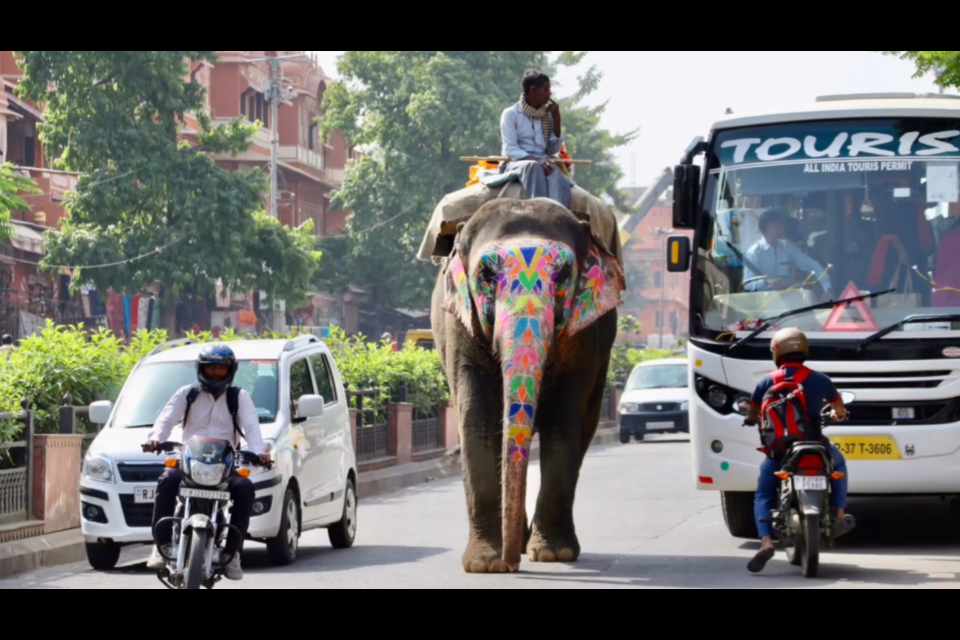After meeting monks in the country of Georgia, Dieter Schneider said they told him something that gave him goosebumps.
"Dieter, we know you have lost a son, but, today, you have got 11 brothers,'" Schneider recalled.
It was one of the many touching moments in the former German fencing Olympian's long motorcycle adventures across the world.
In the wake of his son's death, Schneider decided to take his grief to the open road and wound up riding his motorcycle all over the globe.
His travels took him down African roads, through South American streets, up American highways and Asian thoroughfares.He even wound up at the Los Angeles Memorial Coliseum, a place where he had represented Germany in the 1984 Olympics as a fencer.
He also had some remarks about the Sea to Sky's beauty, as it was another area he had previously toured on his travels.Schneider, a German member of the Rotary Club, shared his story on April 8 via Zoom with members of the Rotary Club of Squamish.
Schneider's long travels began after his 23-year-old son took his own life as a result of depression. A year after the death, in 2015, Schneider embarked on a four-month trans-African trip. He rode from Würzburg in Germany down to Cape Town, South Africa.But that wouldn't be the end of his travels.
In 2018, Schneider decided to take things a step further and went on a trip around the globe. However, that came to an end in 2020 in Buenos Aires due to the global pandemic. His motorcycle is still in Argentina to this day.Aside from the many pictures and stories of his travels, there were two key messages that Schneider shared with the Rotarians.
One, was how travel helped him heal from the emotional distress he was experiencing."Travelling was a big deal for dealing with this, and I met a lot of people along the way with the same thing; they said travelling is really really good for this," said Schneider.
He shared that he met an Australian in Turkey, who had a bout of depression and even tried to take his life.However, that man took his bike to the Australian Outback for a few weeks.
"He started this trip in Australia, and I met him seven years later in Turkey," said Schneider."He said to me, he's still suffering from depression, but he can deal with it on the road. So travelling is a good thing."
The other key takeaway was the importance of talking about mental illness, he said."It's very important, especially here in Europe, that we have to talk about it. That we have to accept that it's a sickness. It's an illness," said Schneider.
He said he was particularly inspired by the Black Dog Ride for mental health in Australia."For me, it was really, really special," said Schneider. "And then I thought this is so successful in Australia, maybe I can copy this concept for Germany."
There are a lot of taboos in Germany, and he said he hoped to bring the event to a wider audience in that country in an effort to destigmatize mental health issues."In the very early stage, it's not a big deal, you can treat it. But the problem is nobody wants to tell," he said.
Schneider has helped co-found the Thomas Lurz and Dieter Schneider Foundation to address depression and support suicide prevention.



